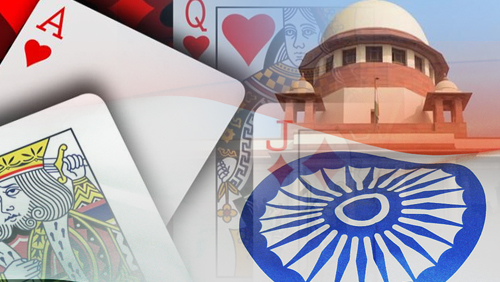 The votes are in. Online rummy is not gambling, at least in India.
The votes are in. Online rummy is not gambling, at least in India.
On Thursday, the Supreme Court of India finally cleared the air on the issue of online rummy being a game of luck or skills. The Indian Express reported the bench was hearing petitions from clubs and online rummy companies challenging a ruling by a Madras high court that playing rummy with stakes is already a form of gambling.
The Supreme Court, however, ruled that the verdict in question only affects table rummy, not the online websites.
The Indian Express quoted Justices Madan B Lokur and S A Bobde, who said “the judgment in question does not pertain to online rummy.” The justices said online rummy and other card games had yet to be subjected to any court orders questioning their legalities, so the “premature” petitions are not needed.
In 2012, a Madras high court declared playing rummy for stakes is gambling. But online rummy websites, including Play Games 24/7 Ltd and Junglee Games India Pvt. Ltd, challenged the ruling, saying the high courts of Karnataka and Andhra Pradesh already ruled that rummy is a game of skill, and therefore, not illegal.
The Supreme Court verdict, however, only applies to online rummy. The bench will hear arguments regarding table rummy in clubs next week.
Junglee Games CEO Ankush Gera told the Indo-Asian News Service in an earlier interview that “skill games like rummy are exempt from gambling laws in India and hence whether they are played with money or not, the legality doesn’t change.”
Online games like rummy have become a way for Indians to fulfill their love betting. Gera said the size of their market has grown 400 percent in the past few years. Junglee Games operates JungleeRummy.com, which caters to players 18 years old and older.
In fact, recent survey by Nielsen India revealed men in the country spend 8.5 hours on average each month playing Indian Poker and Indian Rummy, among other games. Women, on the other hand, spend about six hours a month playing social games.
India is known for being notoriously strict when it comes to gambling within its borders, but there are signs of progress. Early this year, the Supreme Court declared playing cards is a “physical sport,” because hands are used to play cards. If only it’s that easy in other parts of the world.
United States is also draconian in the issue of online poker—technically the American counterpart of online rummy in terms of popularity—but there’s hope with lawmakers introducing new bills after new bills.
Washington D.C. has HB 1114, which seeks to overturn the laws that make it a Class C felony in the Washington state; California has AB 9 and Reggie Jones-Sawyer’s Internet Poker Consumer Protection Act of 2015; while South Carolina State Sen. Lindsey Graham reintroduced the Restoration of America’s Wire Act (RAWA); and Texan Joey Barton introduced HR 2888 Internet Poker Freedom Act.
If only U.S. can take a page out of India’s book.





